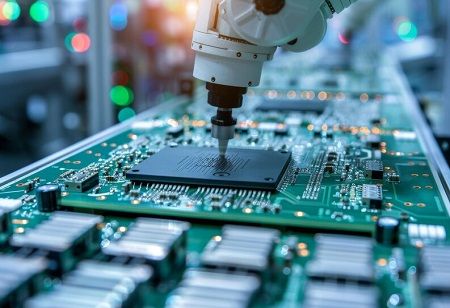
Intel has declared a strategic alliance with Taiwan Semiconductor Manufacturing Company (TSMC), wherein the latter is purchasing a 20 percent stake in Intel's manufacturing business. TSMC will, in return, transfer its experience of cutting-edge chip-making as well as training Intel's workforce to meet the demands of next-generation semiconductor manufacturing.
This partnership is a major change for Intel as it struggles with financial losses and mounting competition from technology giants, including TSMC itself. Markets received the news positively, with Intel's shares jumping almost 7 percent on the announcement—a sign of market expectations of positive news from the deal.
Despite the initial boost, Intel continues to face dire issues such as delays in producing chips of the next generation and declining market share. The alliance is regarded as a vital move towards Intel's long-term plan of repositioning itself as part of a semiconductor company more dedicated to AI, cloud computing, and premium computing. While the alliance offers Intel a chance to revive its chip-making expertise, the company has much to prove—above all, bridging the technology gap with TSMC. TSMC presently rules the semiconductor market with its 3nm and 2nm nodes, with Intel lagging. Even while Intel works on its 18A node, it is still behind TSMC's established technology.
By teaming up with TSMC, Intel aims to close this gap, especially in the AI chip market. However, in an industry characterized by fast-paced development and intense competition, the ultimate success of this alliance is questionable.

